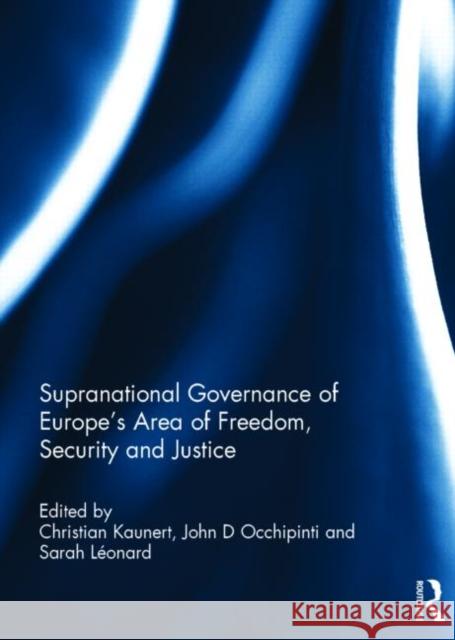Supranational Governance of Europe's Area of Freedom, Security and Justice » książka
Supranational Governance of Europe's Area of Freedom, Security and Justice
ISBN-13: 9781138812406 / Angielski / Twarda / 2014 / 152 str.
Supranational Governance of Europe's Area of Freedom, Security and Justice
ISBN-13: 9781138812406 / Angielski / Twarda / 2014 / 152 str.
(netto: 721,53 VAT: 5%)
Najniższa cena z 30 dni: 654,86
ok. 16-18 dni roboczych.
Darmowa dostawa!
This book examines the evolution towards increased supranational governance in the EU's Area of Freedom, Security and Justice (AFSJ). At the end of 2009, a successor programme to the Tampere and Hague Programmes was developed under the Swedish Presidency. Called the 'Stockholm Programme', it was adopted at a special EU Council Summit on 10-11 December 2009. The new agenda covers the period 2010-2014 and emphasises six areas of priority. In the context of these priorities, as well as the innovations introduced by the Lisbon Treaty, this edited book analyses policy change in the AFSJ, especially as it has been affected by the rise of supranational governance in this domain. From police cooperation and crime fighting to border management and counter-terrorism, much has changed, and the EU has taken yet another step forward in the direction of supranational governance. However, the various contributions also highlight that there are still problems and challenges remaining for the AFSJ.Collectively, this book considers how consequential the Lisbon Treaty has been for the AFSJ, as well as how successful the EU has been in achieving its stated goals as expressed in the Stockholm Programme. Thus, this book makes a significant contribution to the scholarly investigation of the AFSJ, but also to the study of European integration in general. This book was published as a special issue of the Cambridge Review of International Affairs.











